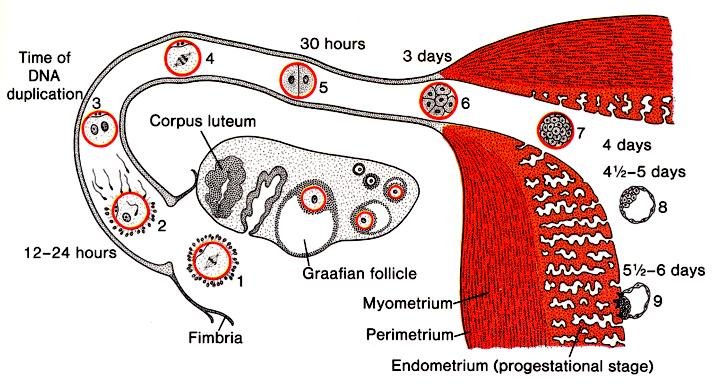With the current national controversy regarding the defunding of Planned Parenthood, I became curious and researched the different services they offered. One of the services mentioned were the emergency contraceptive pills, which are supposed to prevent pregnancy after having unprotected sex. The pills, also called “the morning after pills”, contain 1.5 milligrams of levonorgestrel, used in birth control pills. The pill works by either preventing or delaying ovulation and interfering with the fertilization of an egg in the uterus by altering its lining. A common misconception with the Plan B pill is that it causes miscarriage or abortion, as seen in national debates from religious groups and conservative politicians. I decided to research more about this topic, particularly if these emergency contraceptive pills could be considered abortion pills as these groups suggest.

These groups believe that Plan B pills are considered abortion because they say it might stop the pregnancy after the fertilization of the egg, which they consider killing the baby. However, there is no evidence that suggests that the Plan B pill works after an egg is fertilized. There were two studies that further researched this claim, in which women who took emergency contraceptive pills were monitored and they identified their menstrual cycle day. This cleared up which women were in ovulation. Among the women tested, the ones who took the pill before their ovulation didn’t get pregnant, and among the women who took it on the day of their ovulation or after, there were still a number of pregnancies. This proves that if the pills were effective at preventing implantation after fertilization of the egg, then they probably would be more effective when taken after ovulation.
There was another study done in 2010 regarding this topic, in which the researchers organized a randomized clinical trial with 56 women with regular cycles. The women were given a single dose of ulipristal acetate (Ella emergency contraceptive pill used in Europe) in different doses of 10, 50, or 100 mgs, or a placebo given two days after ovulation. “4 to 6 days after this, the women had a transvaginal ultrasound scan, which measured the thickness of the endometrium, which is the membrane lining the uterus that thickens in preparation of implementation of en embryo.” The study showed that increased doses of Ella might decrease the thickness of the endometrium by 0.6 to 2.2 mm. However, it’s not clear if this would prevent the implantation of a fertilized egg.

My final takeaway on this topic is that emergency contraceptive pills should not be considered the same as abortion pills. According to the multiple studies conducted on this topic, there is no evidence that suggests that the pills are effective after the fertilization of the egg. Therefore, the emergency contraceptive pills don’t work the same way that RU486 (the abortion pill) does. The RU486 starts contractions that result as a miscarriage, which is completely different from the Plan B and Ella emergency contraceptive pills.
Picture links:
http://www.therightscoop.com/wp-content/uploads/2013/04/PlanB_One-Step.jpg
https://cdn-assets.answersingenesis.org/img/articles/am/v2/n1/plan-b-fig-1.jpg

I think it’s impressive that you worked with such a currently controversial topic. When you had your title my first thought was “Oh no, here comes the abortion rant.” However, your data did should proof that the Plan B pill doesn’t terminate a pregnancy, it just inhibits ovulation which is needed to allow and egg to rest. I’m curious, if a women takes many Plan B pills could she abort the child retroactively later in her pregnancy? Source
I agree with you in that Plan B does not count as being an abortion pill. At http://www.babycenter.com/400_how-long-after-sex-do-you-conceive_11642427_851.bc you can read about how you can get pregnant up to three days after having sex. It all depends on when the woman ovulates. So, if you have sex on a day when you are not ovulating and you take the pill the morning after there truly is no fetus in the uterine lining beginning to grow, so you aren’t killing a baby.
Hi Natalia,
I agree with you conclusion in that Plan B is not the same as the abortion pill. After seeing your evidence and looking at way plan B works in your body (and the fact that it has to be taken the immediate morning after, hence the name) it is very different than the abortion pill, taken after conception has already begun later on. Although if you look at Plan B versus regular contraception pills, and Plan B versus an abortion pill, birth control is much better and easier on your body than plan B and the abortion pill.